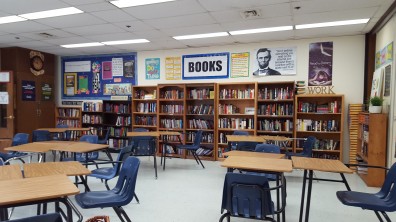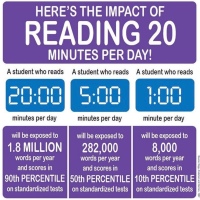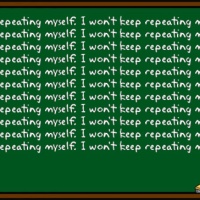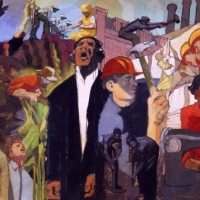the power of words.

I’m a work in progress–both in and out of the classroom.
Outside the classroom, I’m still trying to survive navigate each stage of child-rearing, which I’ve decided is only mastered after my own two children have moved on to the next phase of development. But that hasn’t stopped me from trying. Like breathing, I have always turned to books. These authors, after all, are experts in the field for a reason. However, despite having read virtually every book on the subject, on most days, I’m one hot mess.
And in the classroom, I’m not much different–I just disguise it more stealthily. A few years ago, with the shift in curriculum, initiatives, and state standards, I found myself at a crossroads in my career, bordering on becoming one of Those Teachers who complained about, more than took pleasure in, the day-to-days of teaching. In my defense, even at my lowest point, I never grew tired of my students, and being with them reminded me why I entered teaching in the first place. However, the additional demands that teaching now requires were giving way to resentment. (Don’t forget: These demands were stockpiled atop of the already-existing 4 AM wake-up calls, the absence of weekends, and the myriad of missed family activities.) And while I am more “seasoned” than many of my colleagues, I was still too young to become The Curmudgeon. (My biggest fear has always been devolving into the teacher for whom my colleagues have to apologize: “Oh, [insert Student Teacher Name here], steer clear of that one; she just needs to retire!”)
So, again, I turned to books. Like Newton, I, too, stood on the shoulders of giants, teacher-authors like Kelly Gallagher, Penny Kittle, and Donalyn Miller. In sharing what worked for them in the classroom, these titans injected the very shot in the arm that this teacher needed. I was reborn. Refocused.
I had gotten so myopically lost in my To-Do lists that I had forgotten the very reason I entered teaching: to foster a love of reading in my students. Who didn’t read. And openly admitted to fake reading. That’s when my class library project was born.

Of the 2,200+ titles in my library, 100 of them were generously gifted to me from the Book Love Foundation‘s grant, which Penny Kittle and her husband, Pat, began in 2012. As a grant recipient, an amazing Skype session with Penny turned into the brand new Book Love Foundation Podcast series, produced by Kevin Carlson over at The Teaching Learning Sessions.
In Episode 6 of the series (which just aired and of which I am a part, along with Episode 2), Penny Kittle reminds listeners of the following:
We can’t wait for someone else to develop us. We are in charge of how we grow. Teaching is always a draft–always an approximation–but just like with the young writers we teach, we want each draft to show evidence of revision and improvement … After 31 years of teaching, I’m always hoping next year I will be a better teacher–next week, even.
I. Love. This.
And not just because I have an unhealthy affinity toward all things Penny Kittle an amazing collegial respect for Penny Kittle. But because a fellow educator who has literally written the book on reading and writing still sees room for growth in her own practice.
She articulated my recent mid-career crisis beautifully:
Happiness and contentment in teaching comes from the work itself: We commit to something big and significant. Sometimes that’s leading your colleagues to study reading or a personal mission to bring rich reading experiences to every student in the school…It is the sense of moving forward that makes you a leader.
As I race to finish my twentieth year in teaching (even though I’m only 25), I am Happy and Content in the Work Itself. Am I still daunted by the weight of preparing my students for the High School Hereafter? Absolutely! Am I incessantly overwhelmed by the sheer volume of additional grading that each new initiative brings down the pike? You bet! But am I still Happy and Content in the day-to-day that surrounds the Work Itself? You better believe it!
In his book Dr. Spock’s Baby and Child Care (1945), Spock (of pediatrics, not the Enterprise) assuages parents: “Trust yourself; you know more than you think you do.” I think this wisdom applies to teaching, too–on most days.
But when you’re having one of those other days (years?), grab a book.
You’ll be glad you did.







Pingback: The Power of Words — The Lifelong Learner – for the love of reading.